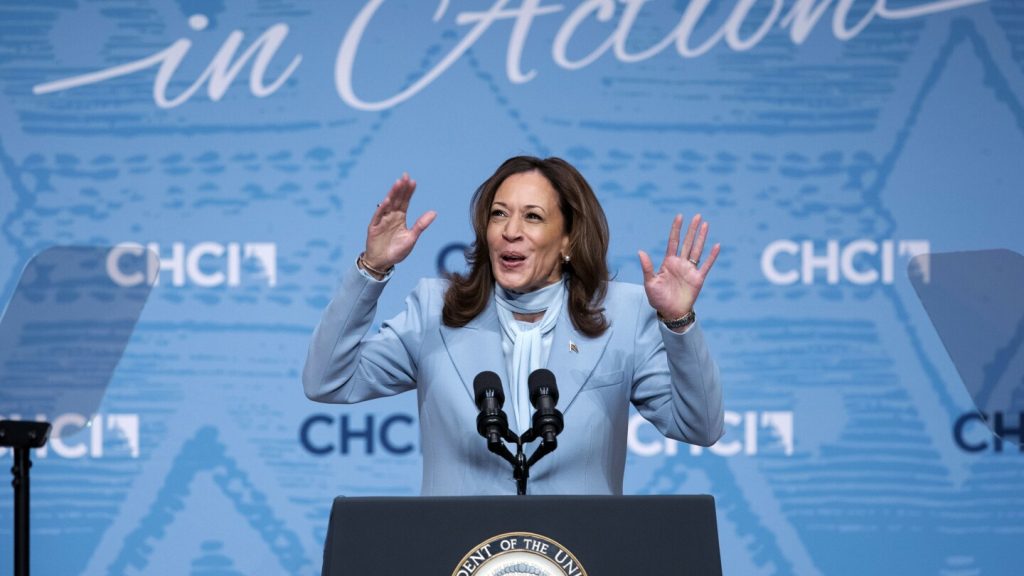A recent poll conducted by The Associated Press-NORC Center for Public Affairs Research found that Hispanic women have a more positive view of Vice President Kamala Harris and a negative view of former President Donald Trump, while Hispanic men are more divided on both candidates. Hispanic men are more likely to believe that Trump represents their views on key issues, which could be crucial in swing states like Arizona. The poll also revealed that nearly half of Hispanic voters identify as Democrats, one-third as Republicans, and about 2 in 10 as independents, suggesting a strong Democratic lean among this demographic.
There is a clear gender divide among Hispanic voters when it comes to opinions on Harris, with a majority of Hispanic women having a favorable view of her compared to Hispanic men. Many Hispanic women see Harris as a better presidential candidate and have warm feelings towards her, while they perceive Trump in a negative light. On the other hand, Hispanic men are more likely to think that Trump possesses the toughness required for the presidency and represents their views on important policies. However, there are still Hispanic men who support Harris and oppose Trump based on their ideologies and perceptions of the candidates.
Economic issues are a top priority for Hispanic voters, with around 8 in 10 considering the economy as one of the most important issues in the upcoming election. Rising grocery prices and the cost of living are driving some voters’ decisions, leading to shifts in party affiliations and preferences. Additionally, health care, crime, gun policy, abortion, and immigration are also significant factors influencing Hispanic voters’ choices. Health care is particularly important for Hispanic voters, as they see it as a basic need and a crucial aspect of social development.
One advantage that Harris holds over Trump among Hispanic voters is the perception that she represents their background and culture better, with about 4 in 10 Hispanic voters believing she aligns more closely with their identity. It is noted that Harris, as the daughter of immigrants, may resonate with Hispanic voters in terms of representation and understanding of their experiences, even though she is not Hispanic herself. This sense of connection to Harris based on shared experiences of prejudice and marginalization could sway some Hispanic voters in her favor, despite not being a member of their specific cultural group.
The poll sheds light on the diverse perspectives within the Hispanic community and their considerations for the upcoming election. It highlights the nuances in opinions based on gender, ideology, and policy priorities among Hispanic voters. The divided views on Harris and Trump, coupled with the importance of economic issues and cultural representation, indicate the complexity of decision-making processes within this demographic. As the election approaches, the dynamics of Hispanic voter support for the candidates could play a significant role in determining the outcomes, especially in key battleground states.















